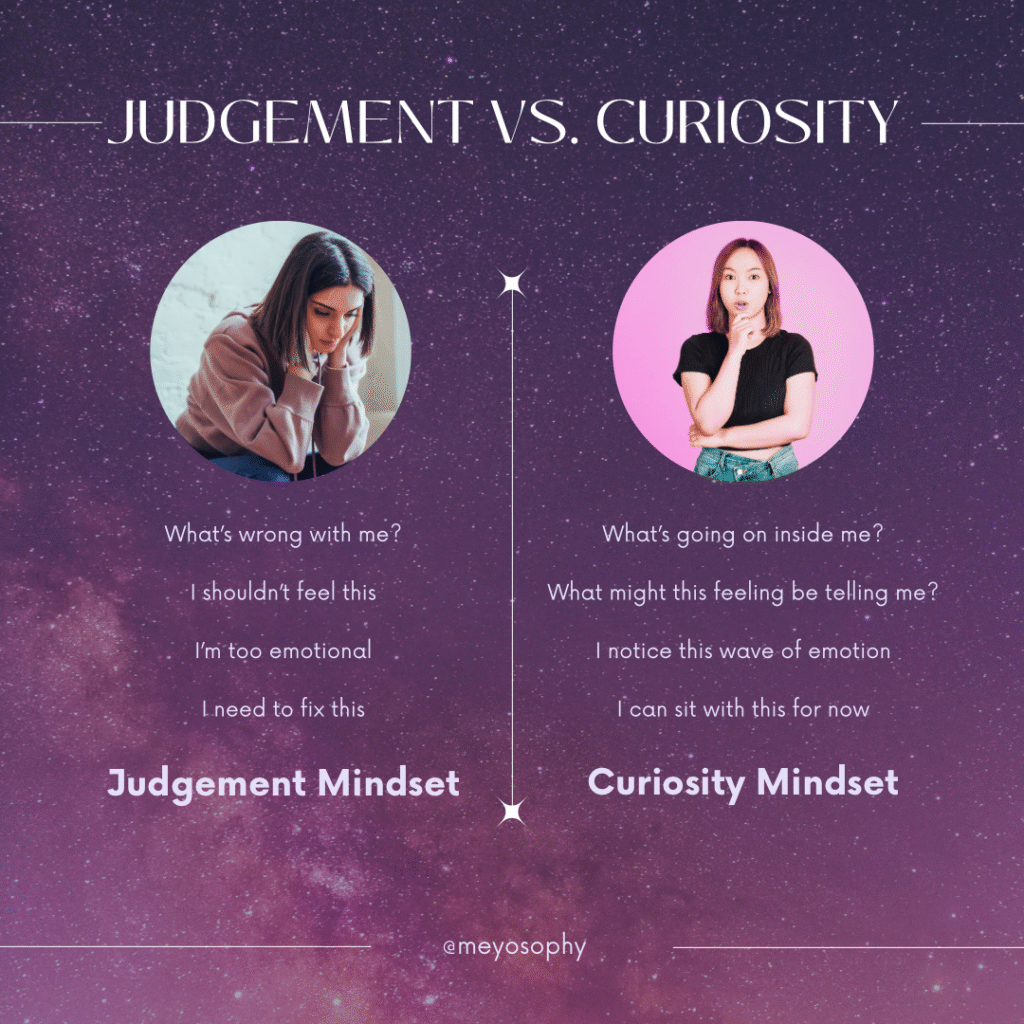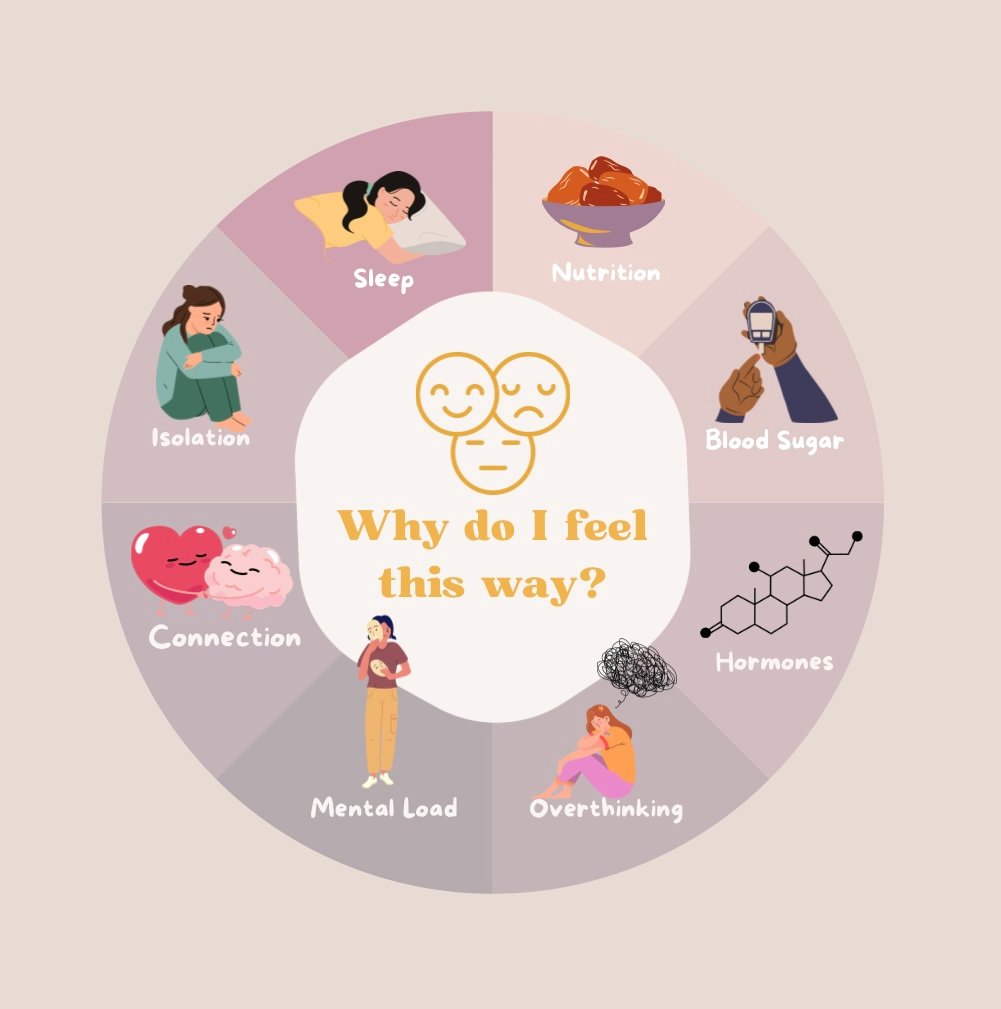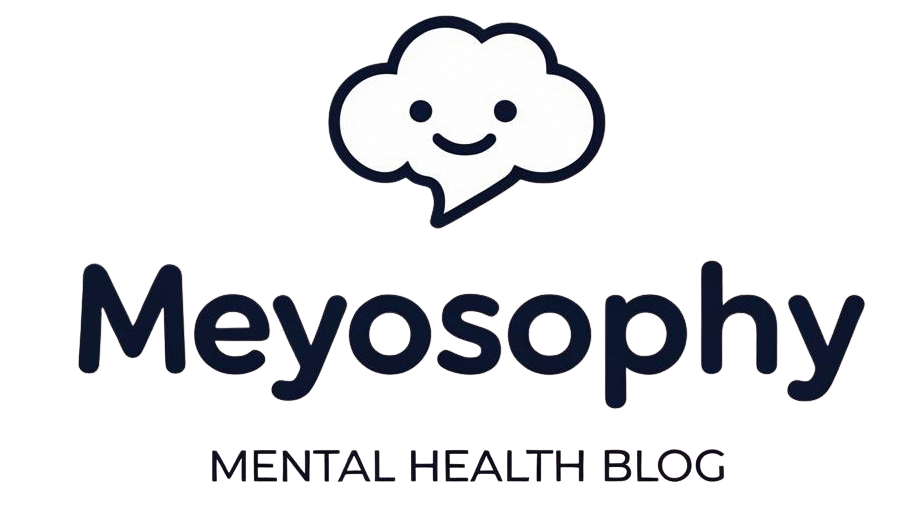We’ve all been there. One moment you’re calm, maybe even content and the next, you feel off, irritated, low, or just not like yourself. And instead of giving yourself the space to feel it, you pile on the pressure: “Why am I like this?” “I have no reason to feel this way.” “This is so stupid.” Sound familiar?
If so, you’re not alone. The problem isn’t that your mood shifts, it’s how we tend to judge those shifts. But what if your moods weren’t something to fix, suppress or fight? What if they were signals that could guide you to deeper self-awareness and emotional health?
Let’s explore how to understand your mood without judgment and why that shift in mindset matters more than you might think.
Why Mood Awareness Matters
Your mood isn’t random. It’s shaped by a mix of physiology, thought patterns, habits, social context, and even the weather. Understanding what’s going on internally helps you:
- Respond to your needs instead of ignoring them
- Recognize patterns over time
- Prevent emotional buildup or burnout
- Improve relationships by knowing how you’re coming across
When you understand your mood, you make space for your humanity. That’s emotional intelligence in action.
Judgment vs Curiosity: The Mental Shift That Changes Everything
Let’s get clear: self-judgment says, “This feeling is wrong.”
Self-awareness says, “This feeling has something to tell me.”
When we meet a bad mood with criticism, we double the discomfort. Instead of processing the emotion, we suppress it. That often results in:
- Anxiety or overthinking
- Shame spirals
- Irritability
- Disconnection from others
- Self-sabotaging behaviors

Curiosity invites you to observe without labeling yourself as dramatic, lazy, or too much. It helps you ask: “What’s this feeling trying to show me?”
Emotions Are Temporary, But Their Messages Matter
Moods often feel heavy because we believe they’ll last forever. But the average emotional reaction lasts around 90 seconds unless we feed it with judgment or rumination¹.
That’s right: what makes a bad mood last isn’t the emotion itself, but how we think about the emotion. So instead of spiraling into shame or panic, try to stay present.
Start Here: 5 Common Mood Influencers
To better understand your mood, begin by looking at these five areas before jumping to conclusions:
- Blood Sugar – Did you eat? Low blood sugar can cause mood swings, irritability, and even anxiety³.
- Hormones – Hormonal shifts (especially around menstruation, menopause, or stress) can heavily influence mood.
- Mental Load – Are you overstimulated, tired, or juggling too many open loops? Mental exhaustion mimics depressive symptoms.
- Connection – Have you been feeling isolated? Or overwhelmed by too much people-time? Both can affect how grounded you feel.

Before you beat yourself up, check in with your body, brain, and bandwidth.
A Simple Tool: Mood Mapping
Want a quick way to check in without spiraling? Try a mood map.
Each day, ask yourself:
- What am I feeling right now?
- Where do I feel it in my body?
- What might be causing this?
- What do I need right now?
Even if the answers aren’t crystal clear, the act of pausing and checking in builds emotional awareness and reduces impulsive reactions. These are also great journal questions to start or end your day with!
Self-Compassion in Practice
Understanding your mood is one thing. Responding kindly is another.
Some quick self-compassionate phrases to try:
- “It’s okay to feel this way.”
- “My mood doesn’t define me.”
- “This is a moment of discomfort, not a personal failure.”
- “There’s a reason for this, even if I don’t know what it is yet.”
You’re not weak for having a bad day. You’re just human. And often, naming the feeling neutralizes its power.
Normalize Mood Fluctuations
You don’t have to be chipper every day to be mentally healthy. Emotional variability is part of life. The goal isn’t to flatten your emotional range, it’s to ride the wave without getting wiped out.
A few things to remember:
- “Off” days aren’t failures
- Not every feeling requires a fix
- Your mood doesn’t have to match your surroundings
- Comparing your mood to others is rarely helpful
What Helps: Practical Tools for Non-Judgmental Mood Awareness
Here are some gentle ways to support yourself when your mood feels hard to carry:
1. Mood Journal
Track your emotions, energy, sleep, food and thoughts for a week. You’ll likely spot a pattern you hadn’t seen before. Use apps like Daylio, or write by hand.
2. Name the Feeling, Not the Identity
Instead of “I am anxious,” say “I’m feeling anxious.” It’s a small but powerful shift that reminds you: feelings are visitors, not permanent residents.
3. Micro-Moments of Mindfulness
Ground yourself in the now with your senses:
- What do I see/hear/feel/smell/taste?
- What’s one thing I can notice without judgment?
These moments lower stress and boost clarity.
4. Talk It Out
Sometimes, mood needs airtime. Whether it’s a trusted friend, therapist, or voice note to yourself, speaking thoughts aloud helps process them more kindly.
5. Create a ‘Low Mood’ Toolkit
Have a few go-to strategies for tough moments:
- A short walk
- A playlist
- A comfort show
- A journal session
- A warm shower
Think of it like emotional first aid, no fixing, just soothing.
Final Thought
Understanding your mood isn’t about having it all figured out. It’s about being present, being kind, and being curious. When you drop the judgment and tune in instead, you unlock one of the most powerful tools for emotional well-being: self-trust.
You’re not broken for feeling. You’re alive. Let’s normalize that.
📌 Sources
- Taylor, J. (2022). 90-Second Rule: The Neuroscience of Emotions. Psychology Today.
- Goldstein, A. N., & Walker, M. P. (2014). The role of sleep in emotional brain function. Nature Reviews Neuroscience.
- Benton, D., & Parker, P. (1998). Breakfast, blood glucose and cognition. American Journal of Clinical Nutrition.
- Neff, K. (2003). Self-compassion: An alternative conceptualization of a healthy attitude toward oneself. Self and Identity.
Disclaimer: I’m not a mental health professional, everything here is shared from research and personal experience. If you’re feeling overwhelmed or need support, please consider talking to a qualified professional. You’re not alone. If you’re in the U.S., you can call or text 988 anytime. For help in other countries, visit https://findahelpline.com.


I started being nicer to myself when I got away from toxic people. You don’t realize what that does to you until you’re away from it.
So true!